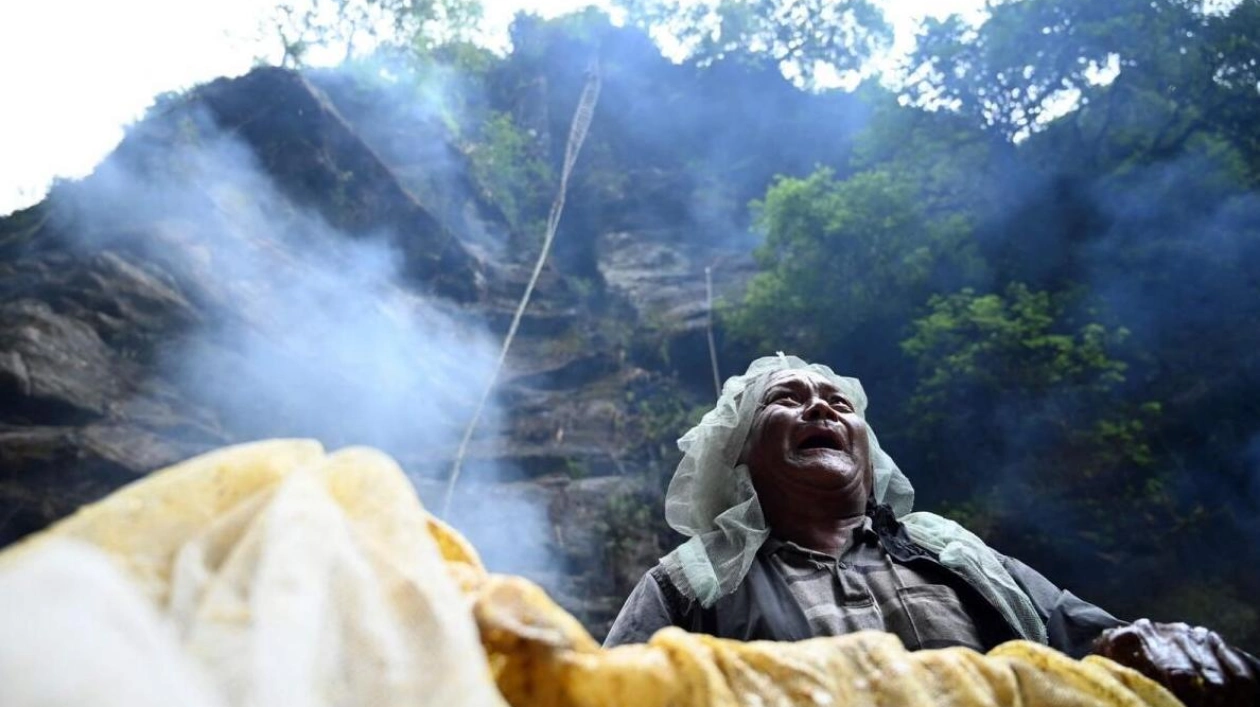Suspended from a rope-and-bamboo ladder clinging to a Himalayan cliff, skilled Nepali climbers collect highly valued hallucinogenic honey, an ancient practice now threatened by environmental degradation and rapid climate change. Wreathed in smoke to repel aggressive swarms of giant bees, 26-year-old Som Ram Gurung precariously hangs 100 meters (325 feet) above the ground, cutting off chunks of dark, dripping honeycomb.
In the villages of Lamjung district, the tradition of harvesting this honey, known as 'mad honey', has been passed down through generations. This honey, sweet yet with a psychoactive kick, is believed to induce a mild high due to its rhododendron nectar content, favored by the bees. The extraction process has always been perilous, involving the high-altitude Apis laboriosa bees that prefer inaccessible cliffs.
However, this skilled craft faces new challenges exacerbated by global warming. Honey hunters report that changing weather patterns and environmental threats are affecting their forested valleys, located 100 kilometers northwest of Kathmandu. Doodh Bahadur Gurung, 65, who trained his son Som Ram in this craft, notes a sharp decline in the number of beehives and honey yields.
He attributes this decline to irregular rainfall, wildfires, agricultural pesticides, and river diversions caused by hydropower projects and road construction. The drying up of streams and increased exposure to pesticides are making it harder for bees to survive. Additionally, the frequency of wildfires has doubled, with over 4,500 incidents reported this year alone.
Scientific studies support the hunters' observations, highlighting that rising temperatures due to climate change are significantly impacting bee populations. The International Centre for Integrated Mountain Development (ICIMOD) warns that at least 75 percent of Nepal's crops rely on pollinators like bees, whose decline is linked to climate change and habitat loss.
The dwindling supply of this rare honey has led to a surge in its price, with a liter now selling for $15, up from $3.5 two decades ago. Despite the high demand from the US, Europe, and Japan, driven by its purported health benefits, the traditional honey hunt is losing its appeal to the younger generation, who are opting for better-paying jobs abroad.
Som Ram Gurung, after enduring numerous bee stings, plans to take up a factory job in Dubai. His father, Doodh Bahadur, laments the loss of both bees and the younger generation's interest in the traditional practice, expressing a bleak outlook for the future.






